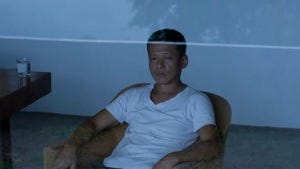Best Films of 2020
Like any self-respecting, self-defeating publication, we at Cinema Year Zero lack immunity to the lure of the end of year poll. We asked everyone who contributed in our first six months to submit two ballots: of 10 2020 films, and 10 older films that were new to them in 2020. That list of discoveries shows the breadth of curiosi…
Keep reading with a 7-day free trial
Subscribe to Cinema Year Zero to keep reading this post and get 7 days of free access to the full post archives.





